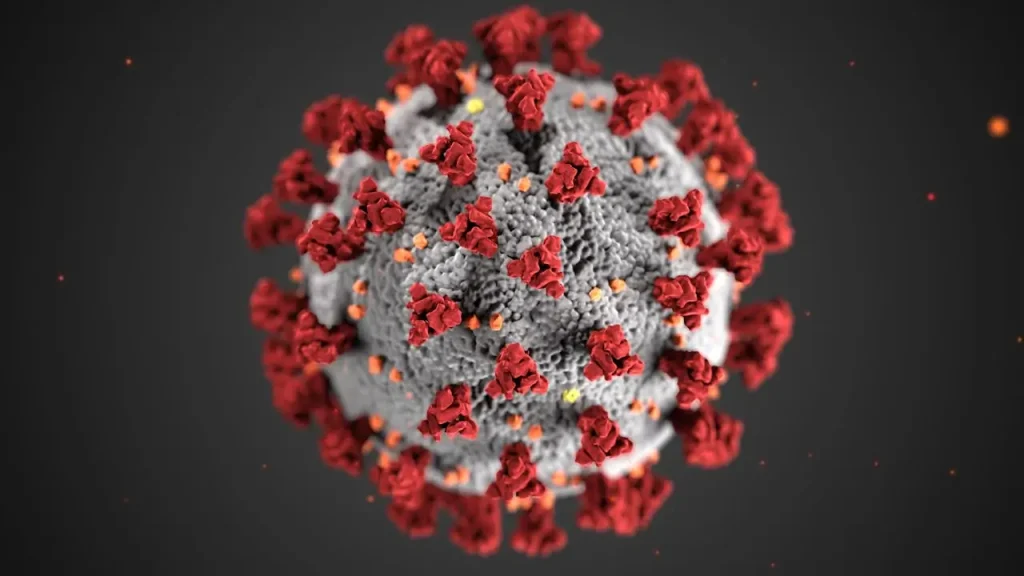Epstein-Barr Virus: Essential Information at Your Fingertips

The Epstein-Barr virus (EBV) is a well-known virus that affects a large portion of the global population. It is commonly associated with infectious mononucleosis or mono, but it can also cause other serious health conditions. If you want to arm yourself with essential information about this virus, you’ve come to the right place. In this article, we will delve into everything you need to know about the Epstein-Barr virus, from its symptoms and transmission to diagnosis and treatment options.
Whether you’ve recently been diagnosed with EBV or simply want to educate yourself about this common virus, this comprehensive guide will provide you with the knowledge you need. We will discuss the risk factors, prevention strategies, and potential complications associated with EBV, empowering you to make informed decisions about your health.
So, if you’re ready to have all the necessary information about the Epstein-Barr virus at your fingertips, keep reading. Let’s dive in and explore this widely prevalent yet often misunderstood virus.
Table of Contents
ToggleWhat is the Epstein-Barr virus?
The Epstein-Barr virus (EBV), also known as human herpesvirus 4, is a member of the herpes virus family. It is one of the most common viruses in humans, with an estimated 90% of the global population being infected at some point in their lives. EBV primarily infects B cells, a type of white blood cell responsible for producing antibodies.
EBV is primarily transmitted through close contact with infected individuals. It can spread through saliva, blood transfusions, organ transplants, and even sexual contact. Once inside the body, the virus can establish a lifelong presence, remaining dormant in certain cells and reactivating under certain conditions.
How is the Epstein-Barr virus transmitted?
The Epstein-Barr virus is primarily transmitted through close contact with infected individuals. The most common mode of transmission is through saliva, hence its nickname, the “kissing disease.” Sharing utensils, drinking from the same glass, or engaging in intimate activities with an infected person can all contribute to the spread of the virus.
In addition to saliva, EBV can also be transmitted through blood transfusions, organ transplants, and even sexual contact. It is important to note that the virus can be present in the body without causing symptoms, making it possible to unknowingly transmit the virus to others. Therefore, practicing good hygiene, such as washing hands regularly and avoiding close contact with individuals who have active symptoms, is essential in preventing the spread of the Epstein-Barr virus.
Symptoms and complications of the Epstein-Barr virus
When infected with the Epstein-Barr virus, many individuals experience mild or no symptoms at all. However, in some cases, the virus can cause infectious mononucleosis, commonly known as mono. The symptoms of mono can vary from person to person but often include fatigue, sore throat, fever, swollen lymph nodes, and enlarged spleen.
While mono is the most well-known complication of EBV infection, the virus can also cause other serious health conditions. These include hepatitis, meningitis, encephalitis, and various autoimmune disorders. In rare cases, EBV has been linked to certain types of cancer, such as Burkitt’s lymphoma and nasopharyngeal carcinoma. It is crucial to be aware of the potential complications associated with EBV and seek medical attention if any concerning symptoms arise.
Diagnosis and testing for the Epstein-Barr virus
Diagnosing the Epstein-Barr virus involves a combination of clinical evaluation, medical history, and laboratory tests. A healthcare professional will typically assess the patient’s symptoms, perform a physical examination, and order blood tests to detect the presence of EBV antibodies.
The most common laboratory test used to diagnose EBV infection is the mono-spot test. This test detects the presence of antibodies produced in response to the virus. Additionally, other specialized tests, such as polymerase chain reaction (PCR) and Epstein-Barr virus nuclear antigen (EBNA) tests, may be conducted for a more accurate diagnosis.
It is important to note that EBV infection can sometimes be challenging to diagnose, as the symptoms can overlap with other conditions. Therefore, consulting with a healthcare professional and undergoing appropriate testing is crucial to confirm the presence of the Epstein-Barr virus.
Treatment options for the Epstein-Barr virus
Currently, there is no specific antiviral treatment available for the Epstein-Barr virus. In most cases, the infection resolves on its own with supportive care, such as rest, plenty of fluids, and over-the-counter pain relievers to manage symptoms. However, for individuals with severe symptoms or complications, additional medical interventions may be necessary.
For individuals with infectious mononucleosis, healthcare providers may prescribe corticosteroids to reduce inflammation and alleviate symptoms. In rare cases of severe complications, antiviral medications may be considered on a case-by-case basis.
It is important to note that the best treatment approach for EBV infection is primarily supportive care, focusing on symptom management and allowing the body’s immune system to fight off the virus. Consulting with a healthcare professional is crucial to determine the most appropriate treatment plan based on individual circumstances.
Prevention and precautions for the Epstein-Barr virus
Preventing the transmission of the Epstein-Barr virus involves adopting certain precautions and practicing good hygiene. Here are some strategies to reduce the risk of contracting or spreading the virus:
- Avoid close contact with individuals who have active symptoms of EBV, such as kissing or sharing personal items.
- Practice good hand hygiene by washing hands frequently with soap and water or using alcohol-based hand sanitizers.
- Avoid sharing utensils, drinking from the same glass, or engaging in activities that involve close contact with saliva.
- Practice safe sex by using barrier methods, such as condoms, to reduce the risk of transmitting EBV and other sexually transmitted infections.
- Ensure proper sterilization of medical equipment and blood products to minimize the risk of EBV transmission during medical procedures.
By adopting these preventive measures, individuals can significantly reduce their risk of contracting and spreading the Epstein-Barr virus.
Living with the Epstein-Barr virus
For individuals with a chronic or reactivated Epstein-Barr virus infection, managing the condition involves maintaining a healthy lifestyle and supporting the immune system. Here are some tips for living with EBV:
- Get plenty of rest and prioritize sleep to allow the body to recover and fight off the virus.
- Maintain a balanced diet rich in fruits, vegetables, lean proteins, and whole grains to support overall health and immune function.
- Engage in regular physical activity to boost the immune system and improve overall well-being.
- Manage stress effectively through relaxation techniques, such as meditation, deep breathing exercises, or engaging in hobbies and activities that bring joy.
- Stay hydrated by drinking an adequate amount of fluids to support the body’s natural detoxification processes.
It is essential to consult with a healthcare professional for personalized advice on managing EBV and maintaining a healthy lifestyle.
Epstein-Barr virus and its link to certain conditions and diseases
Research has shown a potential link between the Epstein-Barr virus and various conditions and diseases. Besides infectious mononucleosis, EBV has been associated with the development of certain autoimmune disorders, such as multiple sclerosis and systemic lupus erythematosus. Additionally, studies suggest a correlation between EBV infection and the risk of certain cancers, including Hodgkin’s lymphoma, non-Hodgkin’s lymphoma, and stomach cancer.
While the exact mechanisms behind these associations are still being investigated, it highlights the importance of understanding the potential long-term effects of EBV infection. Further research is needed to develop a better understanding of the virus and its implications for various health conditions.
Research and developments in Epstein-Barr virus treatment
As the understanding of the Epstein-Barr virus continues to evolve, researchers are actively exploring potential treatment options and preventive strategies. Some areas of ongoing research include the development of antiviral medications specifically targeting EBV, the exploration of vaccines to prevent EBV infection, and the investigation of novel immunotherapies for EBV-associated cancers.
While significant progress has been made, it is important to note that these developments are still in the early stages, and more research is needed before they can be widely implemented. However, these advancements hold promise for improving the management and prevention of EBV-related conditions in the future.
Conclusion
The Epstein-Barr virus is a prevalent yet often misunderstood virus that impacts a large portion of the global population. Understanding the essential information about EBV, including its transmission, symptoms, diagnosis, treatment options, and preventive strategies, is crucial for individuals seeking to protect their health and make informed decisions.
While there is no specific antiviral treatment for EBV, supportive care and symptom management play a vital role in recovery. Practicing good hygiene, adopting preventive measures, and maintaining a healthy lifestyle can significantly reduce the risk of contracting and spreading the virus.
Ongoing research and developments in EBV treatment and prevention offer hope for improved management and long-term outcomes. By staying informed and consulting with healthcare professionals, individuals can navigate the complexities of the Epstein-Barr virus and prioritize their well-being.
Remember, knowledge is power when it comes to your health, so arm yourself with the necessary information about the Epstein-Barr virus and take proactive steps to protect yourself and others.
Related Posts

Investigating Black Gums: Causes, Symptoms, and Treatment Options

Understanding Baby Asthma: Identifying Signs and Treatment Approaches
